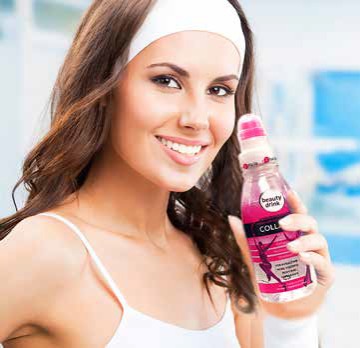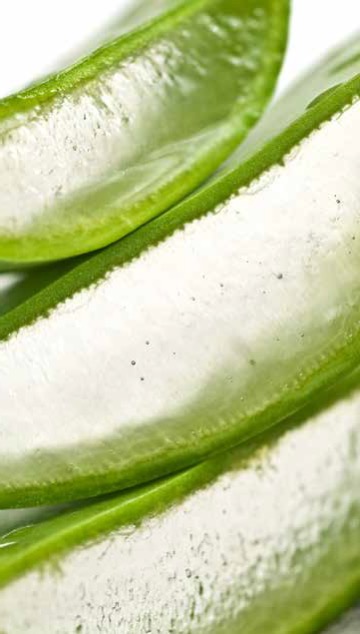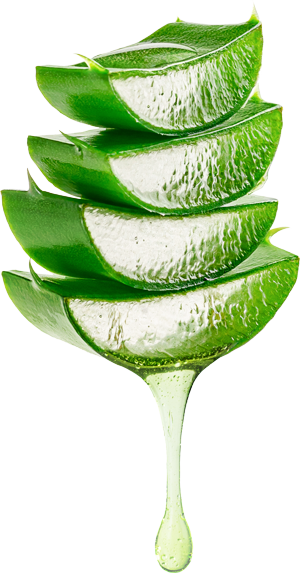Aloe Vera and the Cosmeceuticals

Nutricosmetics refer to products in the form of dietary supplements, functional foods or beverages marketed specifically for beauty benefits, and it appears this trend is on the rise. According to Nutrition Business Journal, sales grew 6% from 2012 to 2015, with supplement sales for this sector reaching more than $884 million in 2015. As the beauty from within concept continues to blossom, it may be somewhat of a challenge for consumers and retailers alike to sift through the marketing hype.
Cosmeceuticals combine the best of both worlds: wellness and beauty. At this intersection, marketers are seeking to help define the term cosmeceutical; this term tends to imply a product that is neither a drug, nor a cosmetic, but one that has a desired impact on the skin. To product developers, it has come to mean any nutritional supplement that demonstrably improves health and beauty, with a particular focus on skin health. A cosmeceutical is a product or formula that contains an important nutritional component such as an herb, mineral, or functional dietary nutrient that is ingested for the specific health benefits and appearance of the consumer.
It is this interest in nutrition supporting both internal health and outward appearance that
is helping drive consumer awareness. More recently, consumers appear to understand that what they eat also plays an important role in how they look.
The market for wellness from within gains momentum as younger consumers focus on delaying signs of aging. Cosmeceuticals treatments for conditions such as photoaging, hyperpigmentation, and wrinkles have Cosmeceuticals refer to the combination of cosmetics and pharmaceuticals. Cosmeceuticals are cosmetic products with biologically active ingredients purporting to have medical or drug-like benefits.
Cosmeceuticals are used for nourishing as well as improving the appearance of the skin, and are also documented as effective agents for treating various dermatologic conditions. Cosmeceuticals improve appearance by delivering nutrients necessary for healthy skin.
Cosmeceuticals, serving as a bridge between personal care products and pharmaceuticals,
have been developed specifically for their medicinal and cosmetic benefits. Cosmeceuticals represent the fastest growth segment in the skin-care market and a number of topical
Cosmeceuticals treatments for conditions such as photoaging, hyperpigmentation, and wrinkles have come into widespread use. Of course, whether any beauty product can kick time into reverse remains dubious. But the more we learn about the biochemistry of skin and the biomechanics of aging, the better equipped the skincare industry will be to formulate safe, effective, and natural cosmeceuticals that, while maybe not turning back time’s hands, can at least help erase its fingerprints. The growth of the U.S. cosmeceutical market in the last decade has been “phenomenal. With an aging population, there is an increase in spending on age-defying or antiaging products.
Fortunately, cosmeceutical formulators can take advantage of a firmer, and broader, foundation of knowledge upon which to build their products. “The concept of antiaging is now not limited to antioxidants,” Pande says, “but also covers factors like inflammation, which has been deteriorating.

AGEING FROM THE INSIDE OUT
As skin ages, these structures and components deteriorate. Some of the deterioration is preprogrammed into our systems and falls under the category of “intrinsic aging”—essentially, the body’s way of winding down. It’s a natural, progressive process that, on the surface, manifests in thinner, weaker, and less-elastic skin. But what’s going on underneath is much more complex.
Intrinsic aging is characterized by “a decline and/or changes in the chemical structure and three-dimensional organization of collagen and glycosaminoglycans. The percentage of hyaluronic acid in the skin decreases, which results in the loss of hydration and moisture. Meanwhile, elasticity and firmness give way to the appearance of wrinkles as collagen and elastin breakdown increases.
A cosmeceutical is a product or formula that contains an important nutritional component such as an herb, mineral or functional dietary nutrient that is ingested for the specific health benefits and appearance of the consumer. And the appeal of “natural” is certainly helping the growth of the market. From what the past few years have indicated, consumers show a strong leaning toward the natural versus the synthetic, especially if the natural may work just as well or better. Consumers are starting to understand, at least on a basic level, what researchers have been seeing for years—components that protect the plant, and the mechanisms by which they do this, are frequently the same as that which protect the human.
It is a known fact that certain herbs contribute to healthy skin and support collagen, an essential building block for the skin, tendons, ligaments, and cartilage. Since inflammation compromises the integrity of collagen, Aloe vera, long known for its anti-inflammatory capabilities, would be a wise choice for many skin care and nutritional supplement products. Aloe has also long been cited for its wonderful moisturizing, detoxification, wound healing, and immune-stimulating properties. In fact, a scientific study carried out on the immune regulatory activity of Aloe vera has shown that applied topically, aloe has the ability to help repair damage to skin cells caused by exposure to the sun. Studies show that Aloe vera improves the skin’s ability to hydrate itself, aids in the removal of dead skin cells, and has an effective penetrating ability that helps transport healthy substances through the skin.
AMB WELLNESS is always at the forefront of researching customer demands and market trends. Customers can choose from an ever-expanding list of premium quality ingredients to use in a variety of cosmeceutical applications.
Aloe vera is a natural compound that has been used for centuries for its skin health benefits and has been shown in a more recent study to serve as a carrier of topical ingredients into the skin and tissues, increasing efficacy, according to Apps. “This is in addition to its roles as a detoxifying/antioxidant ingredient, immuno-regulatory ingredient that helps the skin and immune system recover from the negative impact of UV light, and compound that helps the skin to counteract its lack of resilience and tone from natural, age-related loss of collagen and reinforce the skin’s supportive network for a firmer look.
The overall effectiveness of Aloe Vera in promoting health in the human body is hugely dependent on the polysaccharides found in aloe vera gel. aloe vera can boost your sales of a new class of dietary supplements, aloe vera based.
Aloe Vera improves the availability of nutrients in combination products. As the dietary supplements industry is registering steady and rapid growth, consumers are demanding quality supplements. Consumer perception of the quality of oral solid dosage forms is changing. Good quality is associated with the ability to disintegrate and dissolve. Performance characteristics of oral solid dosage forms in public standards will address the in vitro dissolution requirements, which will be presented as they relate to multivitamin-mineral combination products.



